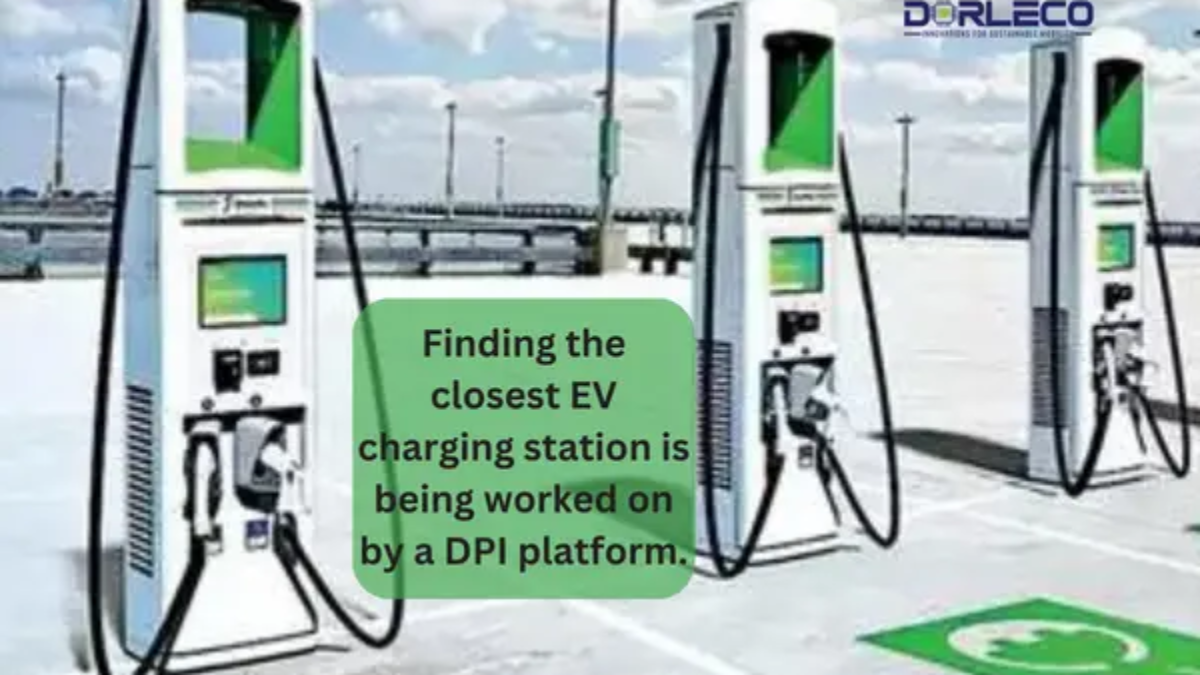The program, known as the Unified Energy Interface (UEI), is driven by the Beckn Protocol and will enable users to look up local EV charging stations and settle payments with several service providers. The Foundation for Interoperability in Digital Economy (FIDE) is behind the open-source Beckn Protocol project.
The group responsible for the decentralized digital economy ecosystems that have been successful, like the National Common Mobility Card (NCMC), Kochi Open Mobility Network, Aadhaar, and Open Network for Digital Commerce (ONDC), is currently developing a digital public good that will allow users to find used idle batteries, green energy sources, and EV charging stations nationwide.
The program, known as the Unified Energy Interface (UEI), is driven by the Beckn Protocol and will enable users to look up local EV charging stations and settle payments with several service providers. The Foundation for Interoperability in Digital Economy (FIDE) is behind the open-source Beckn Protocol project.
According to Sujith Nair, a co-creator of the Beckn Protocol, an open network known as UEI showcased several green energy use cases in a concept simulation with these businesses: Pulse Energy, Sheru, Turno, and Kazam. Finding EV charging stations run by Charge Point Operators using any consumer app, such as a WhatsApp chatbot, was the first use case.
On February 6, FIDE cofounder Nandan Nilekani witnessed a demonstration of the community sandbox for UEI, which was created by Pulse Energy, an EV charger aggregator, in collaboration with FIDE. The demonstration included additional EV start-ups such as Kazam, Sheru, and Turno.
One could look up every EV charging station in the area using UEI. The interface might inquire as to whether a user needs to charge a two-wheeler or a four-wheeler, as well as how much energy is needed. Just as there might be numerous charging provider apps on UEI, these charging stations could be manufactured by any company.
Clients could pick any EV charging station, decide how much energy they require in units, and then place their order. He stated, “The ordering, fulfillment, and payment between the parties could be handled by the UEI network.”
To place the charging orders, one does not need to download many charging firm apps. Orders could be placed from the dashboard of an electric vehicle (EV) or through buyer-side apps like Whatsapp and UPI apps.
Thus far, Pulse Energy has established partnerships with over 20 charging providers, including Charge Zone. It intends to quickly expand the effort nationwide.
According to Pulse Energy’s director, Akhil Jayaprakash, the company’s charging apps assist 15,000 vehicles every day and issue 40,000 units. According to him, EV users can access the full network by downloading any one of Pulse Energy’s programs, such as InstaCharge.
Kazam’s CEO, Akshay Shekhar, stated that the company operates a nationwide network of around 200 charging point providers.
“Kazam’s cloud is linked to these. We’ll make it possible for these operators to join UEI. Almost 15,000 charging stations are directly managed by us. These would also be included in UEI, he declared.
Every participant, including the distribution company, is eligible for an incentive.
With the backing of the current or upcoming green energy policies of the participating Indian states, energy startups, power utilities, and other businesses might collaborate as an open community to develop this idea from a concept to a fully realized application.
Additionally, the simulation might make it possible to access a solar-powered idle battery on the UEI network that produces green energy and has a net meter that lets it feed extra energy into the grid.
Nair explained, “In the simulation, Sheru on behalf of a local distribution company orchestrated the supply of green energy by determining which batteries on the network are lying idle with stored green energy and the demand for green energy from EV charging operators like Pulse Energy or Kazam on the other hand.”
Turno provided distribution firms with access to second-life energy batteries as a source of renewable energy.
Customers can find an available charging station and the amount of energy available to purchase from the station on the UEI, much as they can find retail items on ONDC along with their quantity and pricing.
Sheru is a technological platform that connects renewable energy, energy storage, and e-mobility. Turno is a commercial electric car marketplace. Kazam is a network of EV charging stations.
The presentation illustrated how to use WhatsApp on Beckn to find and pay for EV charging stations.

